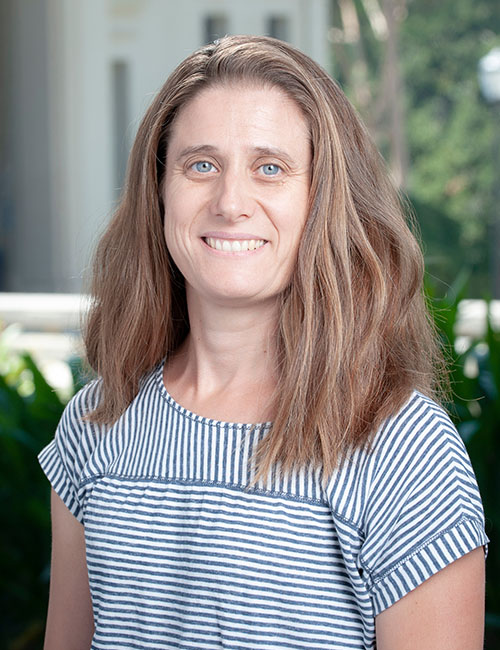In conjunction with Oxy, Emmanuelle Despagnet-Ayoub is working at the Jet Propulsion Laboratory as a technologist.
Despagnet-Ayoub, associate professor of chemistry, comes to Oxy from the CNRS (Centre National de la Recherche Scientifique), where she has been a faculty member since 2006. She has a B.S. from Ecole Normale Supérieure in France, and she completed her master’s and Ph.D. from Paul Sabatier University, the latter in 2002.
When did you take an interest in chemistry?
Despagnet-Ayoub: I started to be interested in chemistry in my senior year in high school. My teacher was amazing and really inspired me. Moreover, I’d already been interested in cuisine and chemistry is a type of cooking!
What attracted you to Occidental?
Despagnet-Ayoub: I was attracted by the dedication of the faculty toward their students and their research, and it reflects on the student’s engagement and enthusiasm. During my visit, I really enjoyed interacting and sharing point of views with the students. Occidental college offers small class size favoring these discussions and personalized interactions. Also, the diversity of Occidental attracted me a lot as I’m a great believer in multicultural communities offering equality, respect and personal enrichment.
What do you enjoy most about teaching?
Despagnet-Ayoub: I’m really enjoying sharing my knowledge to the students, what a reward when you see a smile on their face after understanding a concept! Learning how to scientifically communicate with different backgrounds is really rewarding.
How is the education system in France different than the United States?
Despagnet-Ayoub: The education system is not really different, the class size at Occidental College is probably the main one. What a plus to be able to have a close interaction with the students!
Your forthcoming paper examines “High Performance Inorganic Complexes in Next-Generation Redox Flow Batteries.” Can you explain that in lay terms?
Despagnet-Ayoub: Renewable power sources (wind, solar, hydropower, …) are promising solutions for generating electric power and limiting environmental challenges, however their intermittent behavior is not in phase with the energy demand and the energy storage typically represents only <5% of the total generating capacity from these sources. To overcome the waste of surplus generated capacity, more efficient energy storage capacitors need to be developed. In that sense, redox flow batteries are becoming increasingly of interest as an energy storage technology, they typically convert energy through reversible redox processes occurring between electroactive materials in solution (the anolyte and the catholyte). However, the practical energy density of redox flow batteries is typically low, so in that paper we propose a new materials set for high energy redox flow batteries (that cycle at potentials above 3V) bearing cheap and highly electrochemically reversible metals with outer-sphere Lewis acid in order to increase the potential and solubility of the active electrolyte in organic solvent.
Outside of work, what do you like to spend your time doing?
Despagnet-Ayoub: I like to play with my kids, read, swim, hike and go out to new restaurants!

